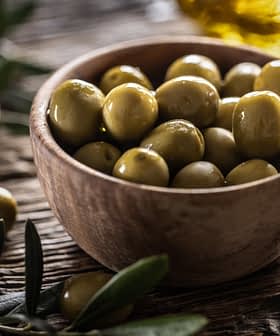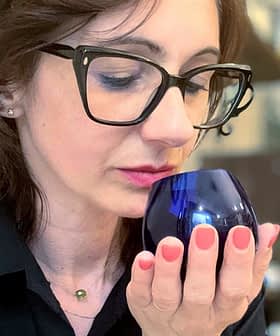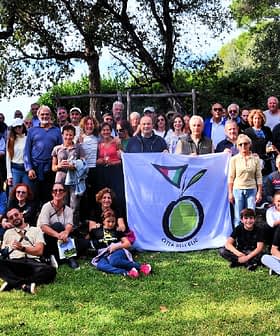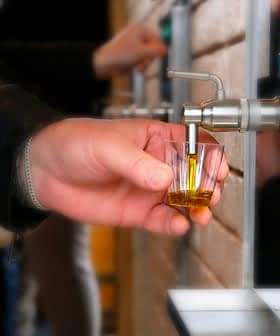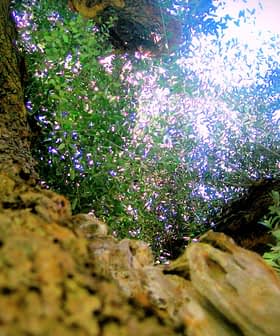Archaeologists Discover Ancient Olive Oil in Italy
The discovery pushes the time table for olive oil production in Italy back more than 700 years earlier than previously thought.
 Credit: Polo Regionale di Siracusa per i siti e musei archeologici Museo Paolo Orsi
Credit: Polo Regionale di Siracusa per i siti e musei archeologici Museo Paolo OrsiResearchers from the University of South Florida found olive oil residue on Bronze Age potsherds discovered by Italian archaeologist Giuseppe Voza in Sicily in the 1990s, with chemical analysis showing the oldest evidence of olive oil in Italian prehistory by at least 700 years. The team used gas chromatography and mass spectrometry to identify oleic and linoleic acids, signatures of olive oil, and nuclear magnetic resonance testing to determine the age of the potsherds, which were from the early Bronze Age.
A team of researchers from the University of South Florida has discovered olive oil residue on potsherds dating back to the Bronze Age.
The sherds were discovered by Italian archaeologist Giuseppe Voza, while he was excavating a site in Sicily back in the 1990s. Two decades later, conservators from the Archaeological Museum of Siracusa reconstructed the pot.
The results obtained with the three samples from Castelluccio become the first chemical evidence of the oldest olive oil in Italian prehistory, pushing back the hands of the clock for the systematic olive oil production by at least 700 years.
Davide Tanasi, an assistant professor of history at the University of South Florida, noticed that the pot had an unusual shape and decided to run residue tests on its interior to determine its purpose.
“The shape of this storage container and the nearby septum was like nothing else Voza found at the site in Castelluccio,” Tanasi said.
“It had the signature of Sicilian tableware dated to the end of the third and beginning of the second millennium BCE. We wanted to learn how it was used, so we conducted chemical analysis on organic residues found inside.”
The reconstructed pot, along with two other samples thought to have been used for a related purpose, were found with other cooking implements at the site in the hilly, southeastern region of Sicily. The site is widely considered a type-site in archaeological literature, meaning it is representative of the culture of a certain time and people.
Both this context and peculiar shape of the vessels made Tanasi and his team eager to figure out what might have been stored within them.
The team of archaeologists used gas chromatography and mass spectrometry to determine the chemical signatures of the organic residues found on all three of the samples. The team then determined the age of the potsherds using nuclear magnetic resonance testing.
The results of the first two tests showed oleic and linoleic acids, both of which are signatures of olive oil, were found in the organic residue. The nuclear magnetic resonance testing determined that the sherds were from the early Bronze Age.
“The results obtained with the three samples from Castelluccio become the first chemical evidence of the oldest olive oil in Italian prehistory, pushing back the hands of the clock for the systematic olive oil production by at least 700 years,” Tanasi said.
Previously, the oldest identified chemical signatures of olive oil in Italy were discovered on storage jars in Cosenza and Lecce in southern Italy, and dated back to the twelfth and eleventh century BCE, respectively.
Chemical signatures of olive oil dating back to the second and third millennium BCE have also been identified on samples of potsherds from Crete. However, evidence of even older olive oil production in the Mediterranean has been found by more traditional archaeological methods, according to Tanasi.
“The earliest olive cultivation and olive oil production in the Mediterranean, dating back to the Copper Age for some case studies in Israel, is usually well documented just from archaeological [methods] — mills and olive pressing vessels — and archaeobotanical perspectives: pollen, olives, wood and leaves,” he said.
The results from the study were published earlier this month in the journal Analytical Methods.



